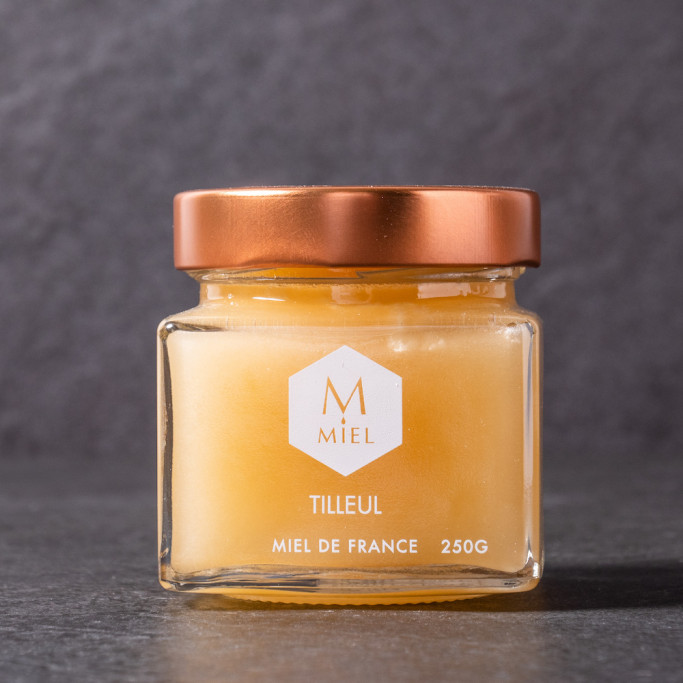






 0
0





 0
0
Lime blossom honey from La Manufacture du Miel is powerful and pleasant on the palate, offering very typical floral and fresh notes that can still be felt minutes after tasting. A perfect bewitchment!
A smooth, velvety, finely crystallized texture. A distinguished, transparent jar.
Rich in trace elements, Linden honey has sedative, anxiolytic and diuretic properties. It is also effective in treating the first symptoms of flu and colds.
A committed honey, the fruit of the support and development work of the OFA (Office français d'Apidologie) beekeeping sector, to which we donate 100% of sales proceeds (see our commitments). It comes from the foothills of the Sainte Baume massif and the many beehives in the Bouches-du-Rhône region supported by the OFA: the largest herd of beehives in France.
250 g / 400 g
Recommended use: to sweeten all drinks and fruity recipes, pure or on toast. Its soothing properties and fresh taste make it ideal to accompany an infusion and help you get a good night's sleep.

Nombreuses ont été les alertes. En 2018 la planète compte 7,5 milliards d’individus, et 1,5 milliards souffrent déjà de carence alimentaire. Que ferons-nous lorsque nous serons 9 milliards en 2050 ? 2050 c’est déjà demain. Par leur rôle de principal insecte pollinisateur, les abeilles sont responsables d’1/3 de la production de notre alimentation. Mais partout, leurs colonies s’effondrent... Les abeilles sont en train de disparaître. Tout l’écosystème est lié, il ne s’agit pas seulement d’abeille, il s’agit de l’avenir de la planète et de l’humanité.
